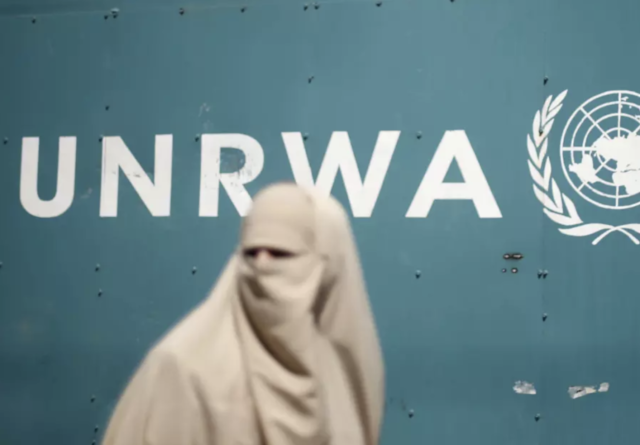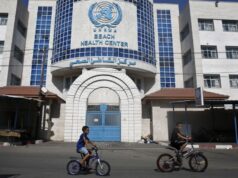
The Trump administration has proposed eliminating federal funding for the Corporation for Public Broadcasting, which subsidizes television’s Public Broadcasting System and National Public Radio. Congress gives CPB about $445 million in taxpayers’ money annually. Most of that is passed through to public television and radio stations, the networks themselves, or spent on acquisitions and capital improvements.
If PBS’s mid-February segment on another White House budget cut—this one the decision to withhold more than half of a scheduled $125 million payment to the United Nations’ Relief and Works Agency (UNRWA) —is any indication, severing PBS from the public dole wouldn’t hurt U.S. news coverage.
PBS’ February 19 segment, “With the Trump administration threatening cuts for Palestinian support, aid groups wonder what comes next,” omits virtually all mention of UNRWA’s actual behavior. It’s simply a one-source interview by the network’s John Yang of the agency’s operations director, Scott Anderson. Anderson is described as a former U.S. Army officer.
Yang lets Anderson talk about UNRWA’s schools, health care centers and—improbably—programs teaching “human rights, conflict resolution and tolerance” and “gender parity.” Anderson pleads ignorance of American demands for reform and stresses what he calls the agency’s opposition to “any type of violence,” including that by “militants” Yang does not otherwise identify. Overall, the segment’s superficiality makes it less a news report than an UNRWA video news release.
Viewers weren’t told that:
*The United Nations High Commission for Refugees (UNHCR) has jurisdiction over all international refugees—except Palestinian Arabs, who are covered by UNRWA. The mandate of the former is to settle refugees in countries that will have them; the latter is mandated to perpetuate Palestinian refugee status until there is a “settlement” of the Arab-Israel conflict;
*UNHCR employs approximately 11,000 staffers to assist 22.5 million refugees among the world’s 65 million displaced people (2016 figures). UNRWA’s payroll includes 30,000 employees for a claimed population of 5.3 million. In fact, folding UNRWA into UNHCR, operating under the latter’s rules, might help resolve Palestinian refugees’ plight.
*Many UNRWA “registered refugees” are citizens of Jordan or hold citizen-like status in Syria. Many do not live in agency “camps”—actually districts much like lower class neighborhoods throughout the Middle East.
*Only Palestinian Arabs from what became Israel were awarded refugee status on the basis of just two years’ residency—because so many were recent migrants from Arab territories. Only Palestinian refugees can bequeath that status—with its educational, health, housing and food benefits—from one generation to another. So today, although there are no more than 50,000 Palestinian refugees from 1948-1949, five million descendants also registered as “refugees” and the intergenerational nature of their status ensures that the population will never decline.
*UNRWA has a “no contact” policy with terrorists, according to Anderson in his PBS interview. This did not prevent the use of some of its schools and clinics by Hamas —the U.S.-designated terrorist organization that runs the Gaza Strip—to store, shield or fire weapons in its 2014 war against Israel.
*UNRWA long has served as an employer for members of Hamas and of factions in the Palestine Liberation Organization.
*And, at least some UNRWA schools and curricula long have promoted anti-Israel indoctrination.
PBS sought out a senior UNRWA official, asked a few general questions about the U.S. decision to withhold funding, and broadcast the resulting puff-piece. Where was the U.S. administration official, say someone from U.N. Ambassador Nikki Haley’s office, to explain why Washington thought UNRWA richly deserved the cut?
The Telecommunications Act under which CPB operates requires recipients like PBS to demonstrate “strict adherence to objectivity and balance in all programs or series of programs of a controversial nature.” Congress has never enforced the objectivity and balance provision. PBS’s segment on UNRWA is one example of why it should start. And why, if constantly monitoring PBS and NPR isn’t Congress’ idea of a good time, defunding might serve as Plan B.





